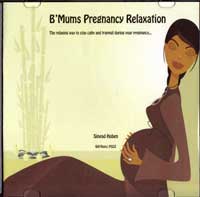Embryonic Stem Cells
Embryonic stem cells are those that are taken from from a human embryo which is around 4 to 5 days old. At this point the cells are in what is known as the blastocyst phase of development.
When an egg is fertilised by a sperm it forms a single cell known as a zygote. This single cell then begins a process of dividing, becoming 2, 4, 8, 16, 32, 64 cells and so on.
After 4 to 6 days the new mass of cells is known as a blastocyst. The blastocyst consists of an inner mass of cells (the embryoblast) and an outer mass of cells (the trophoblast). The outer cells become part of a forming baby's placenta, whilst the inner cells will differentiate to become all the parts that make up a baby. It is this latter mass of cells that are the source of embryonic stem cells. These cells are totipotent cells, ie they have the potential to become any cell in the body.
Normally, during pregnancy, the blastocyst stage of development continues up until the embryo implants in the uterus, at which point it is known as a foetus. By the 10th week of pregnancy all the baby's major organs have been formed although they are not yet anywhere near to being fully developed.
When extracting embryonic stem cells it is the blastocyst stage of development which determines when the inner mass of cells should be isolated. These are then extracted and placed in a culture dish containing a nutrient rich mix which helps them divide and replicate without differentiating. This in turn means they can potentially become any cell type. Over time these cells can then be stimulated to form into whichever specialised cell is required.
Embryonic Stem Cells Video
Douglas A. Melton, Howard Hughes Medical Institute investigator and professor of molecular and cellular biology at Harvard University, speaks on the controversial topic of embryonic stem cells, or ES cells. ES cells are cells that can be isolated from early embryos, before they differentiate into specific types of cells. Because stem cells have the potential to generate fresh, healthy cells of nearly any type, there is interest in exploring their use to treat and cure various diseases. The societal controversy regarding human ES cells relates primarily to their derivation from very early embryos. In addition, certain stem cell lines are developed using a cloning technique called somatic cell nuclear transfer, which can generate cells that are an exact genetic match to a patient.
Related Stem Cells Articles
Adult Stem Cells
Stem Cell Cultures
Stem Cell Potency
Stem Cells Identification
Stem Cell Research
Organ and Tissue Regeneration
Brain Disease Treatment
Cell Deficiency Therapy
Blood Disease Treatments
Stem Cell Videos
Treat Yourself to Me Time!

For the ultimate pregnancy treat, buy our Pregnancy Relaxation CD or download our Pregnancy Relaxation mp3
. Lie back, relax and connect with your unborn baby in the privacy of your own home.
Or, if you're currently struggling with a busy lifestyle and the added demands of parenting, try our Perfect Relaxation for Parents mp3 - take time out for yourself and awaken refreshed and ready to face whatever life throws at you!
Also by BreastfeedingMums
Books We Love!
Support Us!
Write for Us
If you would like to contribute a pregnancy or breastfeeding poem, story or photos, or a miscarriage poem or story, just contact us and we'll add it to the site. Thanks.

